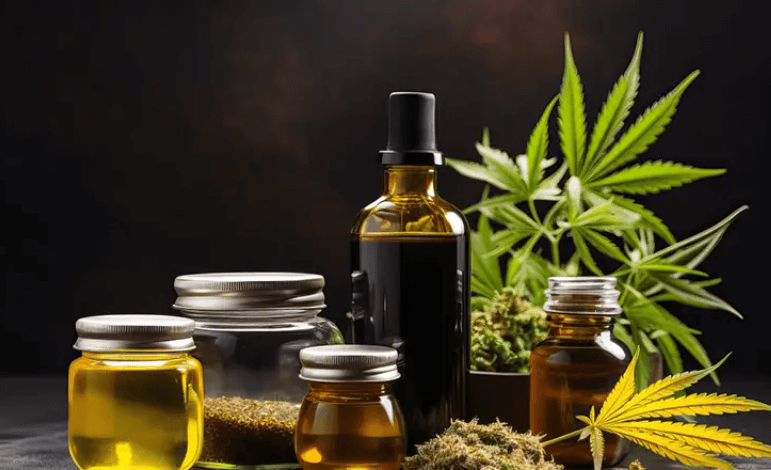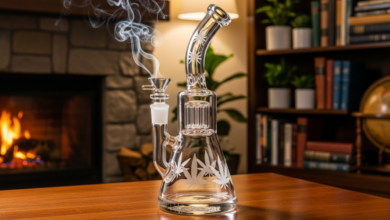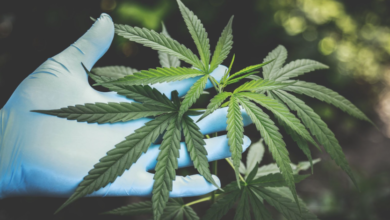Is Cbd Legal in Alabama

The legal status of CBD in Alabama is a nuanced topic, shaped by both federal and state regulations. Following the 2018 Farm Bill, hemp-derived CBD products containing less than 0.3% THC have been legalized, yet Alabama has implemented its own framework to regulate these products. This framework aims to balance consumer access with safety standards. However, as the regulatory landscape continues to evolve, important questions arise regarding compliance, sourcing, and potential legal pitfalls. Understanding these intricacies is crucial for anyone considering the use or sale of CBD in the state.
Overview of CBD Legislation
Understanding the legal landscape surrounding CBD in Alabama requires an examination of both state and federal regulations that define its use, distribution, and production.
As consumer awareness increases, trends within the CBD industry reveal a growing demand for clarity in legislation.
This evolving framework necessitates ongoing analysis to ensure compliance while fostering an environment conducive to responsible consumption and innovation within the market.
See also: How Long Does Cbd Tincture Last in Your System
Federal Regulations on CBD
Federal regulations governing CBD primarily stem from the 2018 Farm Bill, which legalized hemp-derived products containing less than 0.3% THC, thereby establishing a framework for their production and distribution.
This legislation has fostered CBD research, dispelling many CBD misconceptions that previously hindered the market.
As a result, consumers can access products with greater confidence in their legality and safety.
Alabama State Laws
Following the federal legalization of hemp-derived CBD products, Alabama has established its own regulatory framework to govern the sale and use of these substances within the state.
This framework reflects evolving CBD market trends and aims to enhance Alabama consumer awareness regarding product quality and safety.
The state’s regulations seek to balance consumer freedom with necessary oversight in this burgeoning industry.
Medical Use of CBD
The medical use of CBD in Alabama is subject to specific regulations that delineate its permitted applications and the conditions under which it can be prescribed.
Patients seeking the medical benefits of CBD must adhere to established dosage guidelines, ensuring safe and effective use.
These regulations aim to facilitate access while maintaining the integrity of medical practices within the state.
Purchasing CBD Legally
When considering the legal purchase of CBD in Alabama, it is essential to identify compliant sources that adhere to state regulations.
Additionally, understanding age restrictions is crucial, as such laws dictate who can legally acquire these products.
An overview of the relevant regulations will clarify the framework within which CBD can be purchased legally in the state.
Legal Sources for CBD
In Alabama, individuals seeking to purchase CBD products must navigate a landscape shaped by both state and federal regulations that govern the legality and availability of such substances.
The evolving CBD market trends indicate a diverse array of CBD product types, including oils, edibles, and topicals.
Consumers must ensure they source these products from reputable retailers to guarantee compliance with applicable laws.
Age Restrictions and Regulations
Age restrictions for purchasing CBD products in Alabama are established to ensure that only individuals of legal age engage in transactions involving these substances, reflecting broader societal concerns about youth access to cannabis-related products.
Retailers are mandated to conduct age verification during sales, while product labeling must clearly indicate CBD content and usage recommendations to prevent misuse, thereby promoting responsible consumption among adults.
Potential Legal Risks
The legal landscape surrounding CBD in Alabama is shaped by both state regulations and federal law, creating a complex environment for consumers and businesses.
Potential legal risks include variations in enforcement practices and the possibility of penalties for non-compliance with existing laws.
Understanding these factors is essential for anyone navigating the CBD market in Alabama.
State Regulations Overview
Alabama’s regulatory landscape surrounding CBD products presents a complex array of potential legal risks for consumers and businesses alike.
As CBD market trends evolve, the lack of comprehensive consumer education fosters misunderstandings and potential violations.
Stakeholders must navigate state-specific regulations carefully to mitigate liabilities, ensuring compliance while promoting informed consumer choices to harness the benefits of CBD without jeopardizing legal standing.
Federal Law Considerations
Navigating the intersection of federal law and CBD use reveals significant potential legal risks for both consumers and businesses operating within Alabama’s evolving market.
The federal hemp guidelines provide a framework, yet CBD legality implications remain ambiguous, particularly regarding product sourcing and THC levels.
Stakeholders must stay informed to mitigate risks and ensure compliance, thereby safeguarding their interests in this complex legal landscape.
Enforcement and Penalties
Compliance with federal guidelines does not guarantee immunity from potential legal risks associated with CBD enforcement in Alabama, where state laws and local interpretations can impose significant penalties for violations.
Enforcement challenges arise due to inconsistent application of penalty guidelines, leading to uncertainty for consumers and businesses alike.
Understanding these risks is crucial for navigating Alabama’s complex legal landscape regarding CBD products.
Conclusion
The legalization of CBD in Alabama represents a significant shift towards acceptance of hemp-derived products, providing access to potential therapeutic benefits for many individuals.
While regulations ensure product quality and consumer safety, it remains crucial for consumers to navigate the market cautiously.
The ongoing evolution of laws surrounding CBD can create uncertainty; however, the potential for enhanced quality of life through responsible use underscores the importance of continued advocacy for accessible and regulated CBD products.




